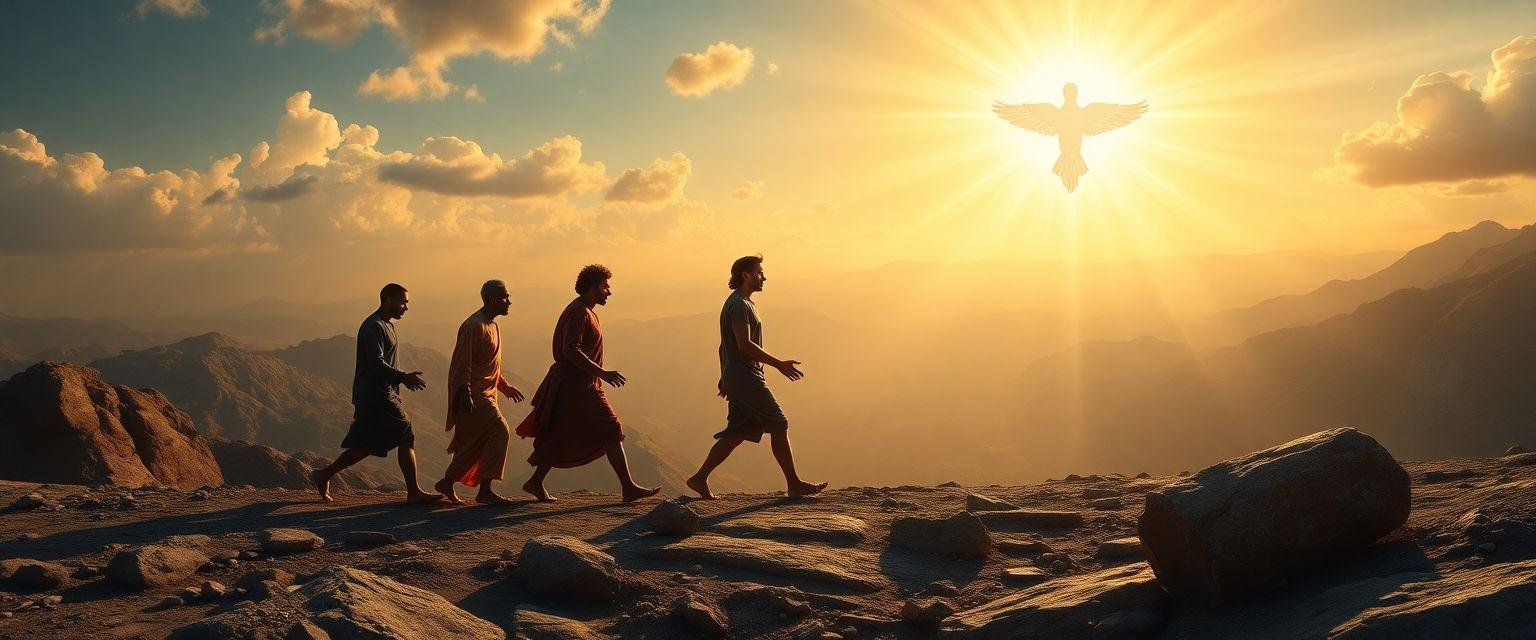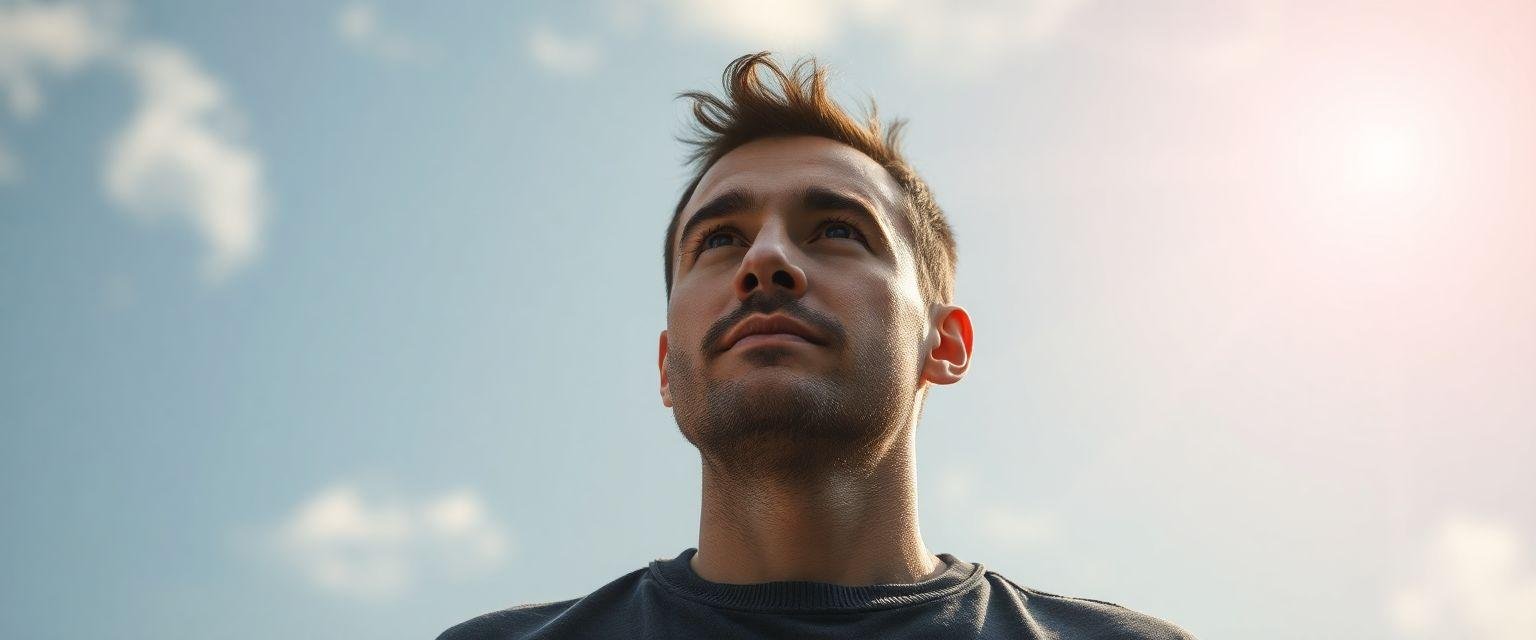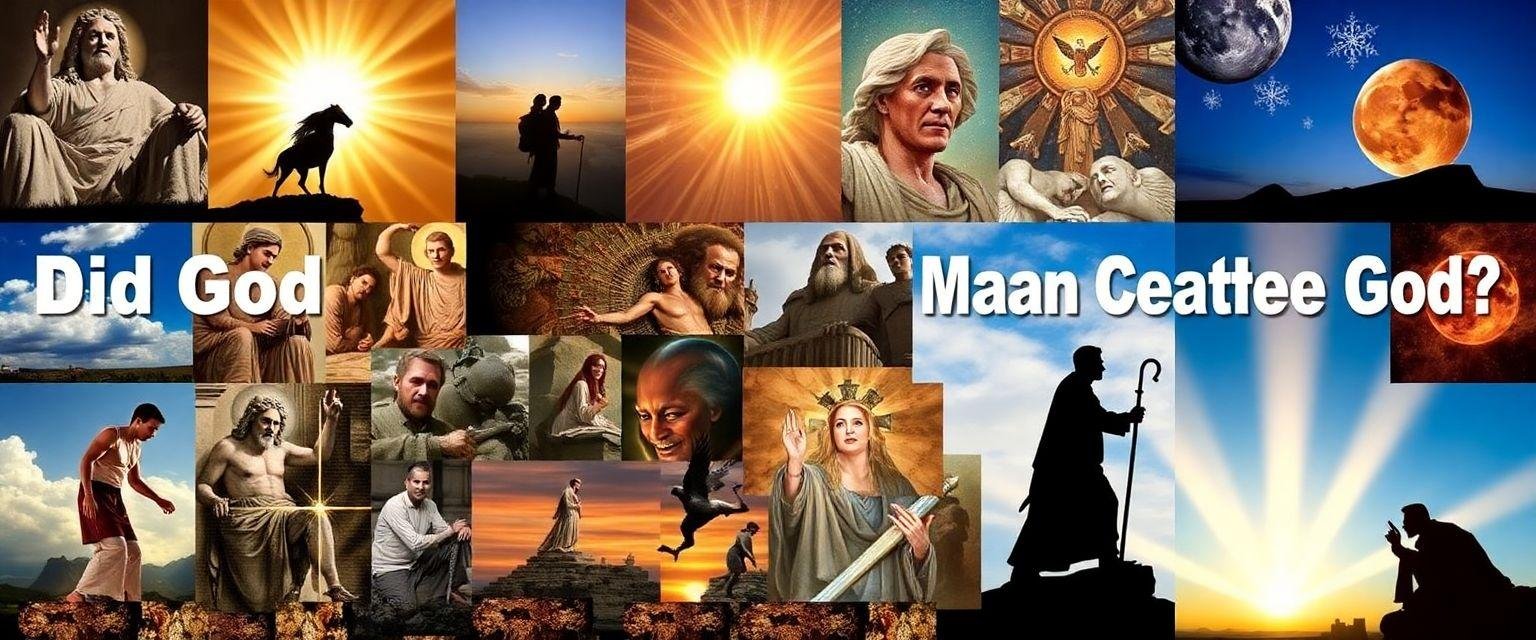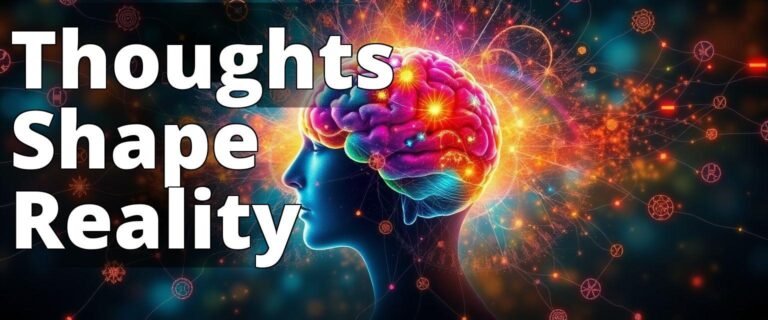Did God Create Man, or Man Create God?
This is not just a question; its a fulcrum for endless debates, discussions, and dissertations. The inquiry, “Did God create man, or did man create God?” lies at the heart of our understanding of faith and human evolution. It challenges us to consider how our beliefs have molded societies and, conversely, how societal changes have reshaped those beliefs. Is religion a divine construct that guides us, or a human invention that evolves to meet our needs? As we delve into this enigma, we find that the evolution of religion is not merely about faith, but about humanity itself.

Explore Faith and Evolution
Delve into the complex relationship between faith and human evolution, discovering how our beliefs may have developed alongside our species.
– Understand how religion evolved as a social tool that helped early humans form communities and maintain order, suggesting that man’s need for connection influenced the creation of religious concepts.
– Learn how moral systems have evolved and how they relate to both divine influence and human development, indicating that morality is deeply intertwined with human survival and societal progress.
– Discover how the search for meaning in life has shaped our understanding of God and existence, reflecting our innate desire to find purpose in the context of an evolving world.
The Evolution of Religion
Religion is as old as humanity itself, a testament to our need to understand the unknown. From the earliest animistic beliefs to the organized religions that dominate todays world, the evolution of religion mirrors the evolution of human societies. Anthropologists suggest that religion began as a way to explain natural phenomena, instilling a sense of control in a chaotic world. As societies grew more complex, so did their religious systems, with gods becoming more anthropomorphic and moralistic.
Consider the shift from polytheistic beliefs to monotheism, a transformation that parallels the rise of centralized political structures. The ancient Egyptians with their pantheon, the Greek gods on Mount Olympus, and the Norse deities all gave way to the singular, omnipotent God of Abrahamic faiths. This shift wasn’t just theological; it was societal and political, reflecting the need for a unifying ideology in increasingly large and diverse communities.
Insider Tip: “Understanding the evolution of religion is key to understanding human evolution. Religion didn’t just evolve alongside us; it shaped us.” – Dr. Emily Carter, Anthropologist
In this light, one might ask: Are our beliefs just reflections of our societal structures? And if so, what does that say about the future of religion in our rapidly changing world?
The Evolution of Morality
The moral compass that guides human behavior is often attributed to religious teachings. However, morality is not solely a religious construct. Morality likely evolved as a social necessity, ensuring cooperation and cohesion within early human groups. As societies became more complex, so did their moral codes, often codified in religious texts.
Consider the Ten Commandments, which are as much about maintaining social order as they are about spiritual guidance. Similarly, Buddhist precepts and the Islamic Sharia offer frameworks that blend ethical behavior with spiritual growth. This intertwining of morality and religion suggests that while religions may claim moral authority, morality itself is a human invention adapted to fit religious contexts.
Recent studies in evolutionary biology suggest that humans have an innate sense of fairness and empathy, traits that predate organized religion. These findings imply that while religion can guide and shape morality, it is not its sole origin.
Insider Tip: “Morality is a social construct born out of necessity, not just divine decree. Understanding its evolution helps us appreciate our shared humanity.” – Professor John Malik, Evolutionary Biologist
Could our moral instincts have developed independently of religion? And if so, does this diminish the role of religion in modern ethical debates?

The Evolution of Meaning
Religion has long provided meaning and purpose in human lives, answering existential questions that science often leaves untouched. The narratives offered by religionsfrom creation myths to eschatological visionsprovide frameworks through which individuals can understand their place in the universe.
However, as our understanding of the world has expanded, so too has our quest for meaning evolved. The rise of secular philosophies, humanism, and existentialism reflects a shift in where people seek purpose. While some find meaning in serving God, others find it in human achievement or personal fulfillment.
The evolution of meaning is evident in how religious beliefs adapt to contemporary issues, such as environmentalism and social justice. Many religious groups now emphasize stewardship of the Earth and equality, aligning ancient teachings with modern values.
Insider Tip: “Meaning in life is not static; it evolves with our understanding and circumstances. Religion is just one lens through which we view our existence.” – Dr. Lisa Yang, Philosopher
In a world where secular and spiritual coexist, where do you find meaning? Is it possible that as our understanding grows, so too will the ways in which we derive significance from our lives?

The Evolution of God
The concept of God has not been static throughout history. Instead, it has evolved alongside human understanding and societal needs. The God of the Old Testament, characterized by wrath and judgment, contrasts sharply with the loving and forgiving God emphasized in modern Christianity. This evolution reflects broader cultural shifts toward values like empathy and compassion.
Theologians argue that these changes are not just about adapting God to fit modern sensibilities but are also about deepening our understanding of the divine. As humans grow in knowledge and empathy, our conception of God becomes more nuanced, reflecting an evolving relationship with the divine.
Consider the increasing dialogue between religion and science. Where once they were seen as opposing forces, many modern religious thinkers embrace scientific discoveries as revelations of Gods work. This integrative approach suggests that as humanity evolves, so too does our understanding of God.
Insider Tip: “The evolution of God is a reflection of our own evolution. As we grow, so too does our understanding of the divine.” – Reverend Samuel OConnor, Theologian
If God evolves with us, does that mean our understanding of the divine will continue to change? How might future discoveries further shape this relationship?

The Evolution of You
The evolution of religion, morality, meaning, and God ultimately culminates in the evolution of the individual. As we navigate these changes, each persons journey of faithor lack thereofbecomes a personal evolution. This journey is shaped by cultural influences, personal experiences, and intellectual pursuits.
In todays interconnected world, individuals have access to a plethora of ideas and beliefs, allowing for a more personalized spiritual journey. Whether one finds solace in traditional religious practices, embraces a secular worldview, or carves a unique path, this evolution is deeply personal and ever-changing.
As individuals, we must consider how these broader evolutions influence our personal beliefs. Are we passive recipients of these changes, or active participants shaping our own faith journeys?
Insider Tip: “Your spiritual evolution is yours alone. Embrace the journey, let it be informed by the past, but don’t be afraid to forge a new path.” – Dr. Anjali Mehta, Psychologist
In what ways have your beliefs changed over time? Are these changes reflective of broader societal shifts, or are they uniquely yours?

Conclusion
The evolution of religion, morality, meaning, and God is a testament to humanitys relentless quest for understanding. It is a journey that tells us as much about ourselves as it does about the divine. As we continue to explore these themes, we must remain open to the possibilities of change, both in our beliefs and in ourselves.
In the end, whether God created man or man created God may remain an open question. What is certain is that our faith, our morality, and our meaning will continue to evolve, reflecting the dynamic nature of humanity itself. As we ponder these profound questions, we must ask ourselves: How will our individual and collective evolutions shape the future of faith?
For further exploration, consider visiting this resource for more on the historical and cultural evolution of religion.

For additional insights into related topics, check out our sitemap for a comprehensive overview of content.
Questions
Q. Who believes in the connection between faith and human evolution?
A. Many theologians and scientists explore the relationship between faith and evolution.
Q. What do scientists say about God and human evolution?
A. Scientists typically focus on evolutionary processes without attributing them to divine intervention.
Q. How can faith coexist with the theory of evolution?
A. Faith can coexist with evolution through interpretations that see God as a guiding force.
Q. What are common objections to the idea of faith and evolution?
A. Some argue that evolution undermines the concept of divine creation and purpose.
Q. Who can provide insights on faith and human evolution debates?
A. Scholars in theology and science often provide valuable insights on these debates.
Q. How can I reconcile my beliefs with evolutionary science?
A. Many find reconciliation through open dialogues and studying diverse perspectives.







